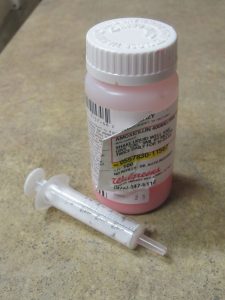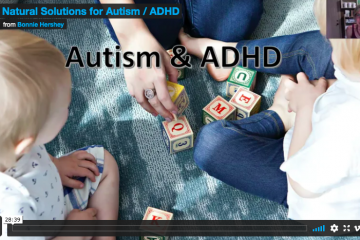Pros And Cons of Antibiotics In Kids
The use of antibiotics in kids has become a commonplace practice in American culture. Our fast-paced, drive-through society loves the quick fix when our kids aren’t feeling well. “Doc, can you just give me an antibiotic?”
There are certainly those moments in motherhood when prescription antibiotics are needed and most welcome. (I had one of those moments myself recently.) However, these moments can and should be few and far between. The overuse and misuse of antibiotics in kids has been highly criticized in recent years…and for good reason.
Pros To Using Antibiotics In Kids
-
They are easy to give.
-
They require very little education and time to administer.
-
They work effectively at wiping out an infection, most of the time.
Cons To Using Antibiotics In Kids
-
 It can take 1-3 days for your child to bounce back once you start the dosages. (This may sound pretty fast to you; however, the nutritional approach to healing that we take can start working within just hours and can be started at the very first sign of illness.)
It can take 1-3 days for your child to bounce back once you start the dosages. (This may sound pretty fast to you; however, the nutritional approach to healing that we take can start working within just hours and can be started at the very first sign of illness.) -
They completely wipe out all bacteria in the child’s gut (good and bad). Keeping your child’s gut health in excellent condition is essential to a strong immune system response.
-
Frequent use (More than twice/year) can set the stage for repeated colds/infections and even candida overgrowth.[1. “Common Side Effects, Allergies and Reactions to Antibiotics.” Last retrieved Jan 24, 2014. http://www.drugs.com/article/antibiotic-sideeffects-allergies-reactions.html] Post-antibiotic care is necessary to combat this.
- Immediate side effects can include stomach upset, diarrhea and–in some cases–allergic reactions. [2. Nemours. “The Danger Of Antibiotic Overuse.” Last retrieved Jan 20, 2014. http://kidshealth.org/parent/h1n1_center/h1n1_center_treatment/antibiotic_overuse.html#]
- All drugs and antibiotics cause our livers to work harder. The main function of the liver is to detoxify our bodies from, well, toxins. This includes antibiotics. Some classes of antibiotics are harder on the liver than others.
-
Bacteria can build up a resistance to antibiotic use when used improperly or too frequently (especially when coupled with unknown antibiotic intake from our food supply as well.) If that happens, treating the infection becomes a whole lot more challenging.
What’s A Parent To Do?
- Keep very open dialogue with your child’s pediatrician. Make sure he/she is only prescribing an antibiotic for a real bacterial infection. Prescription antibiotics should never be taken to address viral illnesses or even as a preventative to something that has not happened yet. Share your concerns with your doctor and make the final call.
- Keep your child’s immune system strong by eating a healthy diet, limiting sugar intake, and boosting with smart supplementation on a regular basis. Prevention is always the best medicine!
- Establish an herbal medicine cabinet at home, so that at the first sign of illness, you can help your child right away. Catching illnesses early will often result in zero antibiotics needed.



0 Comments